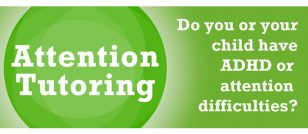Attention Tutoring
- Features
- -Cutting edge EEG technology to measure brainwave activity
- -Non-pharmacological
- -Best approach for all ages
- -Tutors come to your home
Description
The goal of Attention Tutoring is to support children and adolescents with ADHD or attention difficulties, and their families to improve their attention, increase their self-awareness, and enhance their lives. The All in One program trains their brain through neurofeedback, executive functioning and organization skills training, and relaxation/biofeedback.
Each child or adolescent is different in many ways. Yet, children with ADHD and attention difficulties tend to have difficulty getting started, maintaining attention, staying organized, managing time, and often calming down.
Dr. Steiner has pulled together research-based approaches to train attention and executive functioning skills. Included in each lesson are:
Neurofeedback, to learn to increase focus and maintain focus
Executive functioning and organization skills training, to train scheduling, time management, and organization skills
Relaxation/Biofeedback techniques, to teach relaxation through calm breathing or biofeedback.
As each child is unique, we individualize the program by establishing primary areas of challenge to work on over the 30 lessons.
All in One is a systematic educational program of thirty 50-minute lessons, which are delivered by a certified tutor at your home twice a week.
Learning about your brain
In order to develop healthy attention habits it is critical for students and their families to understand how the brain of children or adolescents with ADHD or attention difficulties is different. As a part of the Attention Tutoring program, we teach families about the frontal brain. This is the part of the brain that takes care of focusing and maintaining focus. Additionally, the frontal brain is in charge of executive functioning tasks such as prioritization, time management, organization, planning out work, and making sure everything gets done on time.
Attention Tutoring also explains current research to families on how the brain of people with ADHD benefit from regular sleep, physical activity, and structured routine.
How does ADHD and attention difficulties affect life at school?
When the kindergarten teacher calls out to the class to gather up for circle time, children come and sit around her. Then she picks up a three-foot-tall ‘Gingerbread Man’ book and starts to read. What happens right then? Right then, typical children naturally begin to pay attention and listen, as their fontal brain becomes activated with beta waves (attention brainwaves). This happens like an automatic switch, just because the teacher has started to read. For children with ADHD this is not the case. Their frontal brains, specifically the beta waves (attention brainwaves), are not so active, so their brains don’t switch on as easily to focus. For students with ADHD, switching their brain on is not automatic, it takes a lot of work and effort.
A few years later, as the middle school history teacher explains the American Revolution, what goes on in the classroom? Typical children follow what the teacher is saying so that they can gather the information required for their long-term assignment and remain focused on what the teacher is saying. In addition, they can do this for as long as the teacher is giving information because teachers adapt the length of explanations to the typical student. It is difficult for a student with ADHD to maintain high beta waves (attention brainwaves) over time, so maintaining focus becomes difficult and s/he will become easily distracted and tired.
This example also applies to listening to the teacher in high school or following a lecture in college. As students progress through the grades, expectations increase in all areas, including attention span, organization, and time management. Students with attention difficulties and ADHD will also continue to mature in those areas, yet discrepancies usually persist between them and typical students. This can lead to continued challenges and frustration.
We come to your home and fit into your schedule!


